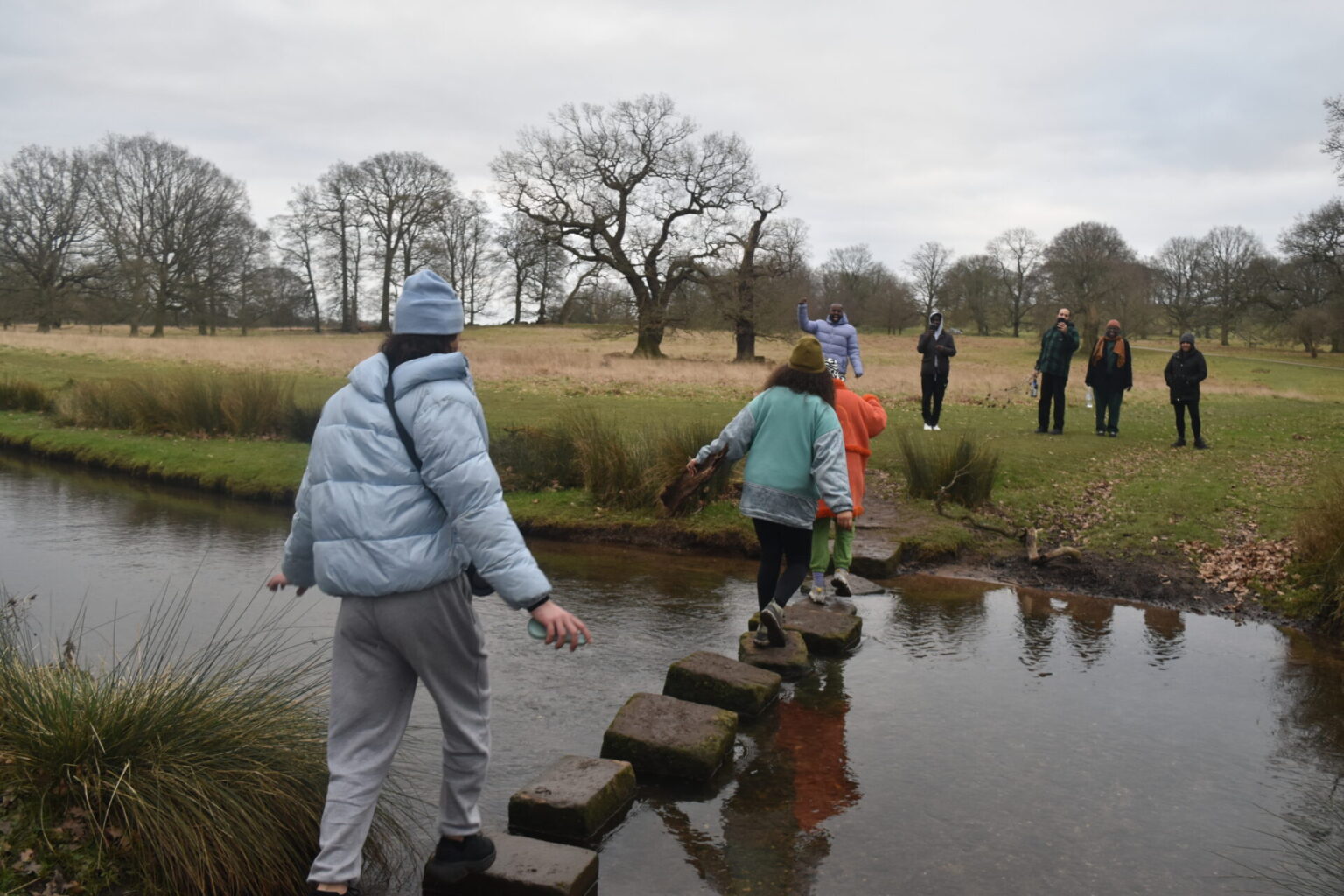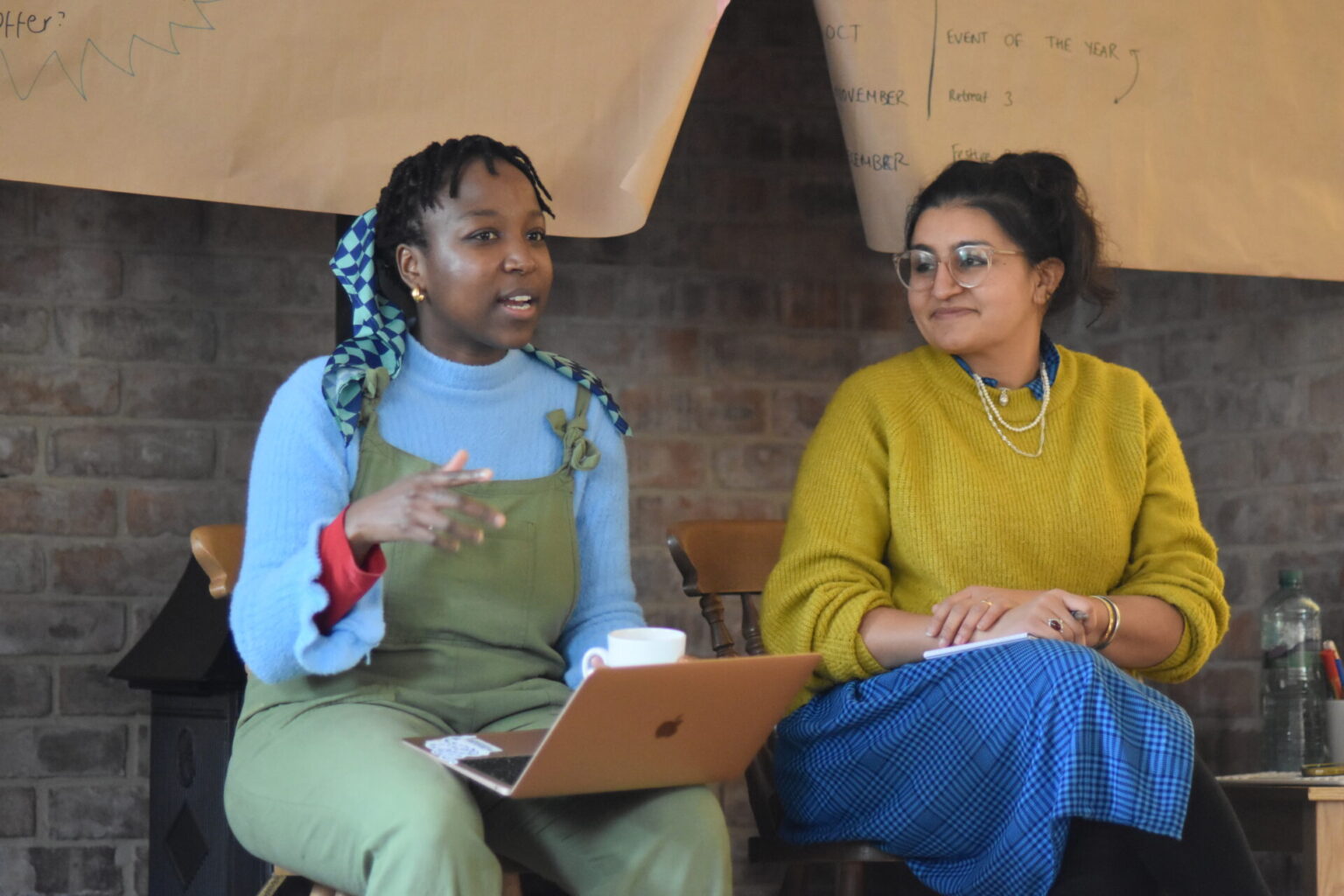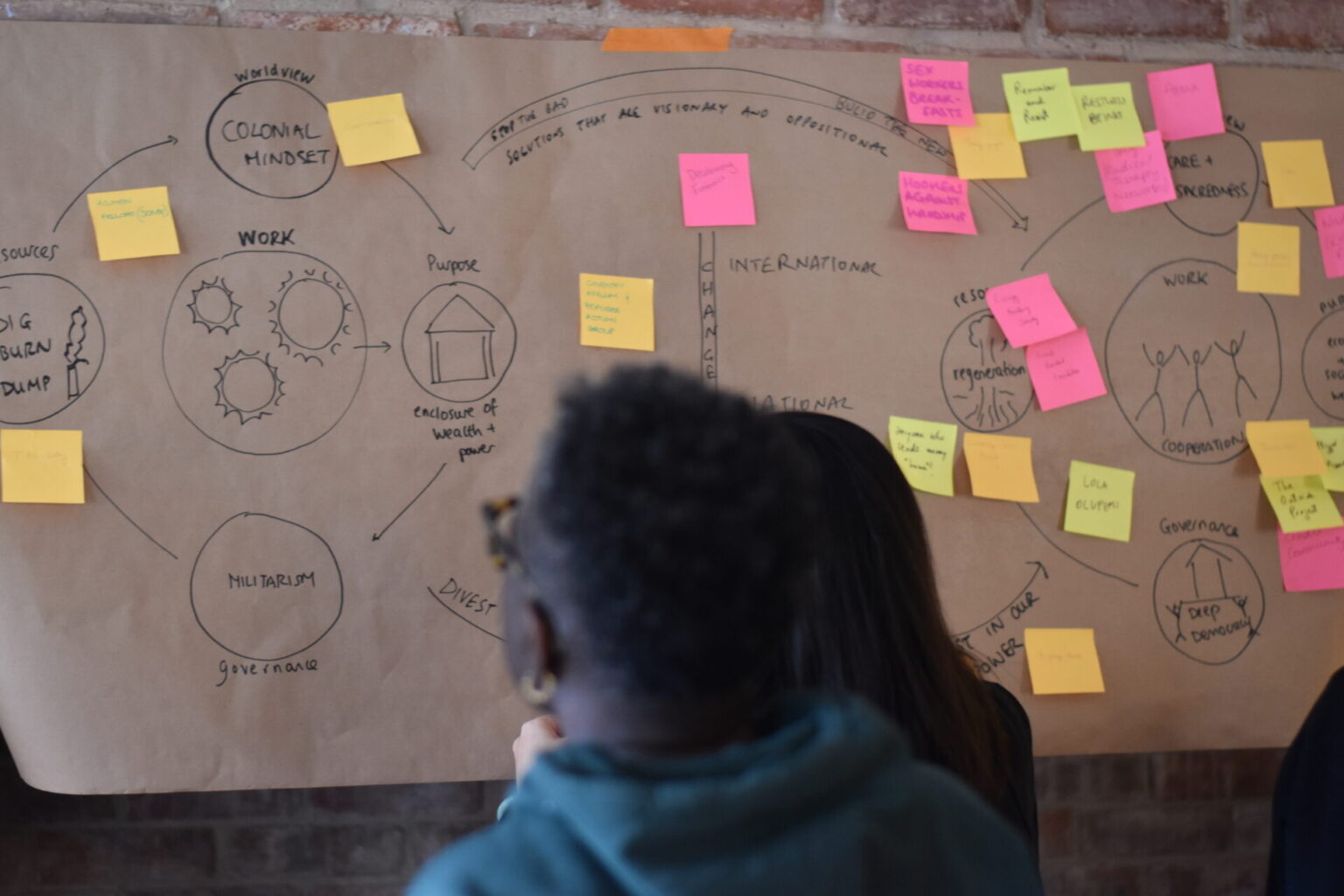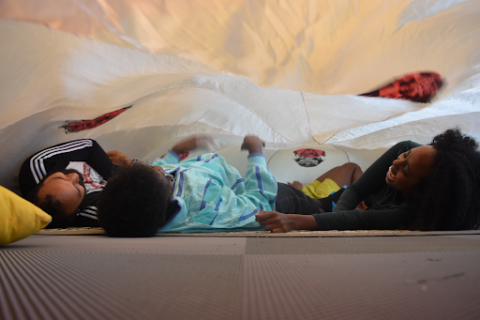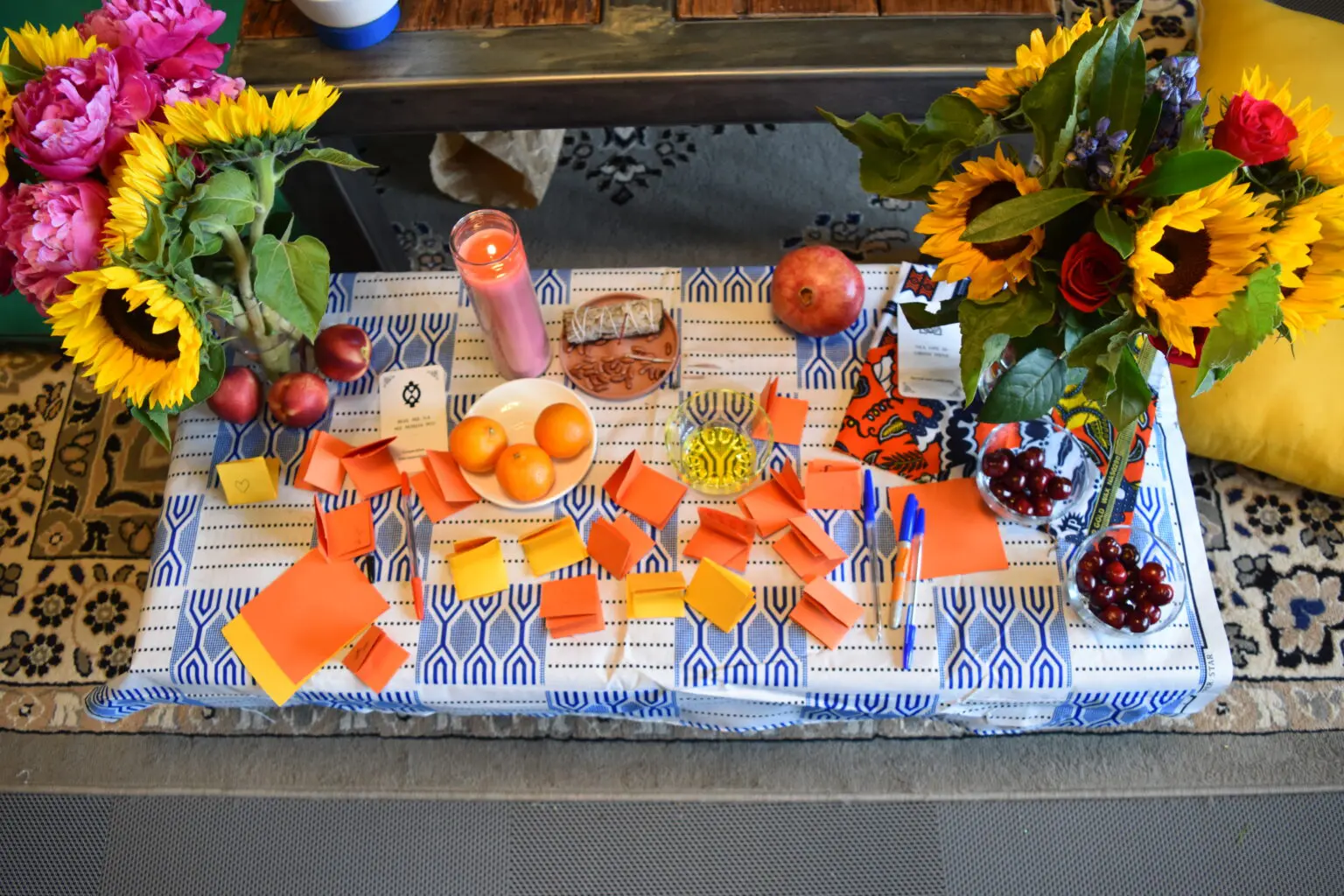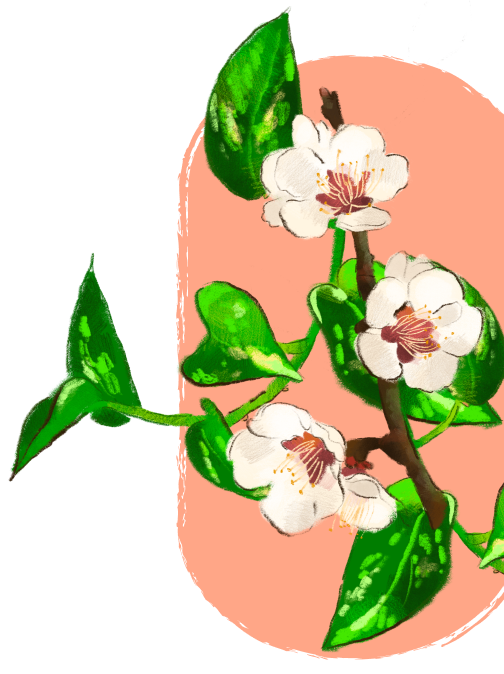
About us
In 2021, Guppi and Noni felt deeply that they wanted to support the many Black and People of Colour organisers who were working tirelessly towards a solidarity economy rooted in racial justice principles.
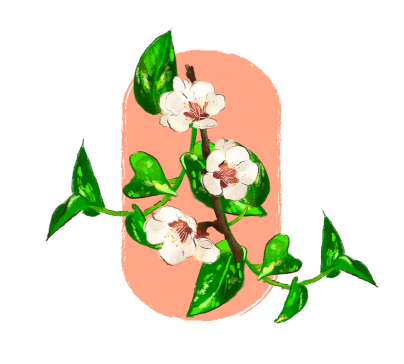
The solidarity economy offers us an organising framework to help bring about a Just Transition - the purpose of us establishing Decolonising Economics back in 2019.
These multi-skilled storytellers, caregivers, builders, weavers, frontline responders, healers, visionaries, mediators and disruptors were creating nourishing economic realities for their communities - unresourced, unrecognised and disconnected from each other.
In 2021 we launched Decolonising Futures to mobilise resources and attention towards our dream of running a year-long programme for BPOC leadership in the solidarity economy. After months of planning and preparation, the team were finally able to deliver!
The Nourishing Economics programme included a series of retreats, workshops, hang outs, community dinners and collaborations between 2023 -2024 of just under 40 BPOC solidarity economy organisers. We met in nature to connect, heal and dream about a future in which the economy was based on the practices of care and liberation.
Held together by the Just Transition Framework of building a regenerative economy, we developed our Nourishing Economics Strategy that moves us from “stopping the bad” to “building the new”:
Organising
Strengthening the ecosystem of Black and People of Colour organisers and initiatives that are experimenting in the solidarity economy. We do this through political education rooted in intergenerational, creative and embodied praxis, gatherings and skills shares.
We are guided by “what the hands do the heart learns.”
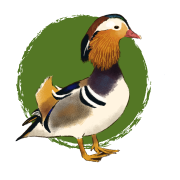
Resourcing
Financing the solidarity economy and building new economic infrastructure to move private wealth in to community control. We do this work in partnership with allies seeking to divest from the extractive economy.
We are guided by "if we are not prepared to govern, we are not prepared to win.”

Influencing
Shifting the analysis and practise of dominant new economy organisations by supporting their integration of the colonial history of the economy into their strategy development.
We do this through long-term partnerships that seek to adapt and embody BPOC-led thought and practise.
We are guided by “if it is not soulful it is not strategic.”

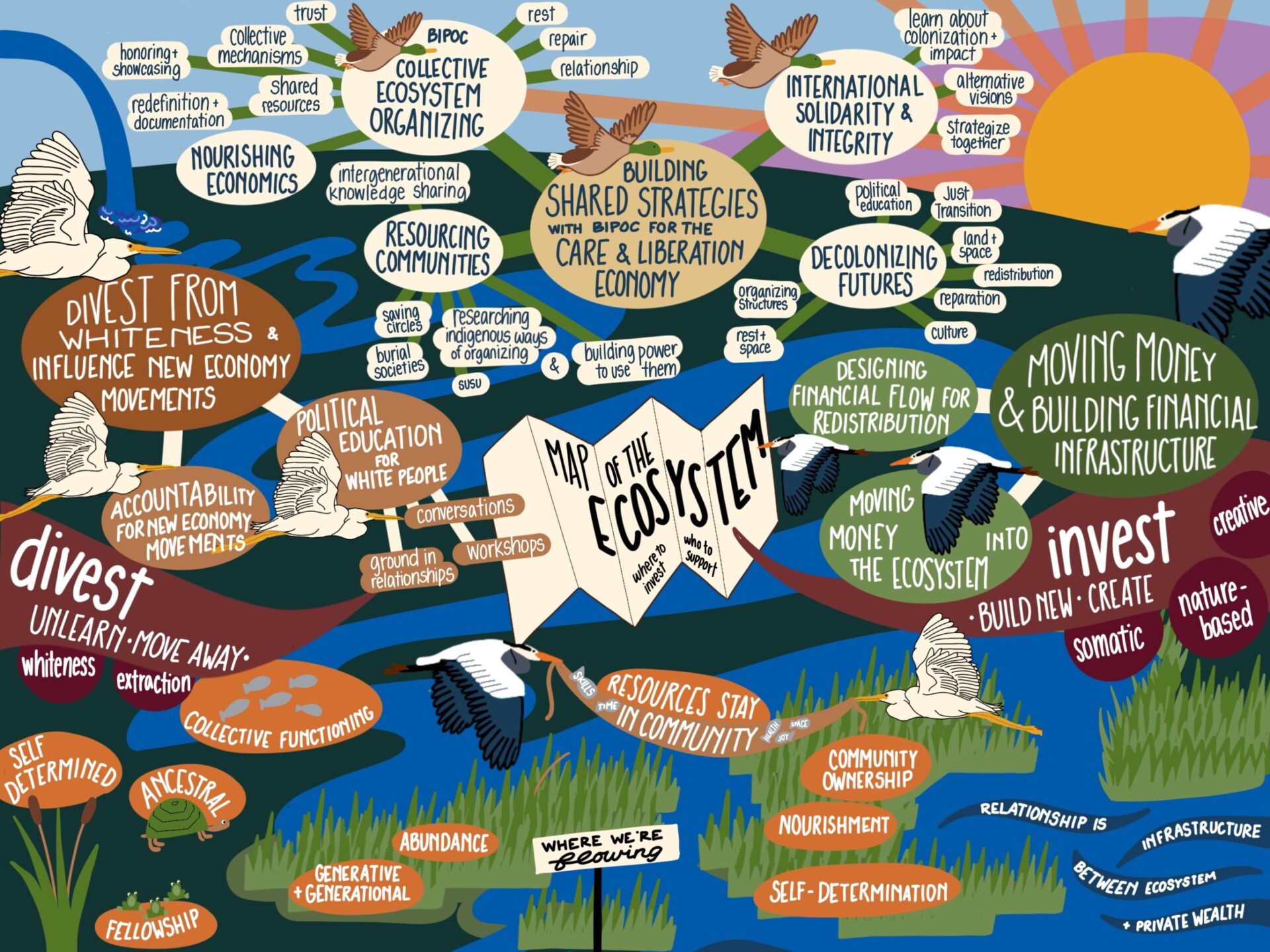
A visual mapping of our Nourishing Economics strategy. Illustration by Hope Tyson.
Our principles
“Solidarity economy (SE) is an organising framework for those who wish to create a systemic commitment to and practice of interdependence and collective liberation in the economic activities that meet our material needs.
Solidarity economy rests on our shared values: cooperation, democracy, social and racial justice, environmental sustainability, and mutualism. Interdependence and respect are central.” - Solidarity Economy Principles
Nourishing Economics has developed its principles of organising based on what contributes most effectively towards the Strategy for a Just Transition:
Shared resources and shared vision
We work with the belief that there exists enough between us to sustain life equitably and sustainably.
Dominant culture wants us to operate with a scarcity mindset - to compete with each other rather than work towards cooperation.
The Solidarity Economy is built on a commitment of community self provision and collective resourcing at a local, bio-regional and global level.
Leadership through Intergenerational and Ancestral Knowledge
We work to liberate what we know is already within us, and unlearn generations of teachings that have been imposed upon us through the colonial mindset.
Because “the solidarity economy is the oldest economy in the world” it is our responsibility to integrate and encourage what we know is already possible.
Collective care, relationships and accountability
We work with those we hold deep and trusting relationships with, and we work to build deep trusting relationships with others.
We believe that trust is the foundation of an aligned movement, and in trust building we begin to heal patterns of harm that are a reflection of racial capitalism and its dynamics.
Democracy and process
The Solidarity Economy is a precursor to an economic democracy. Without a commitment to practise governance, we remain unprepared for holding collective power.
We work to build an organising infrastructure in which communities can effectively make decisions towards self determination.
Liberation culture
We have a commitment to working ourselves out of domination culture, and moving towards collective liberation.
We give space and attention to power dynamics that reflect the systems of oppression emerging from the White Supremacist, Imperialist, Capitalist Patriarchy.
Our story
The Nourishing Economics Programme is a story of a nourishing community.
We experimented with solidarity economy practices rooted in our ancestors' vision of economic self determination, we cooked, cried and cultivated joy together to build shared strategies of BPOC care and liberation.
Over the retreats we explored:
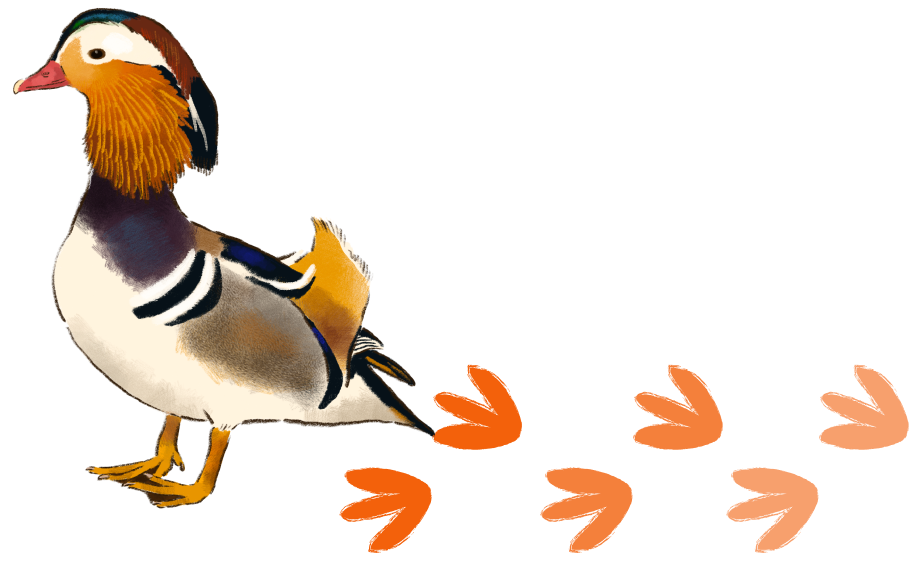
We mapped out our initiatives across the Just Transition Framework, spanning across the material elements of the economy, such as: housing, food, energy, land and the workplace.
We drew connections between our communities, our practices and the tools we were using the resist and divest power from the extractive economy. These included mutual-aid, resistance organising and community self provision.
We identified that we were all facing the same conditions - overwork, under resourcing, poor health and a significant crisis of care.
We located these conditions within the historic drivers of extraction and found inspiration in the possibilities of building a regenerative economy.
We collectively identified where we are in scarcity, be it our finances, time, skills and support.
We heard from our elders about how scarcity has shown up in our communities before, and how they’d rejected the narrative of lack to meet community needs collectively through solidarity economics organising.
We looked at where are were in abundance; knowledge, connection and the resources our communities had supported us to fundraise for this programme.
We designed a process for redistribution that would meet our immediate needs, and then practised naming our needs and asking each other for help.
Setting up an Open Collective page where the group could submit requests to create conditions that would enable their sustained participation in the programme such as access to healing modalities, utility costs, subsidised travel, technical equipment - and these were signed off by the group month by month.
We also designed a process for redistribution that would invest in our long term dreams as an ecosystem.
The Ecosystem Fund was a seed funding pot for each initiative within the collective to establish projects that they were dreaming of. The process involved people sharing their ideas with each other, asking for feedback and support, then participants signing off each other's proposals and then receiving up to £2000 to experiment and explore.
We spent the final retreat revisiting our collective dreams and the possibilities that could make them a reality. This included a conversation of how we deeply commit to the principles of organising necessary to bring around a Just Transition with guest speakers, Michelle Mascarenhas (formerly Movement Generation) and Stephanie Brobbey of Good Ancestor Movement.
We explored the creation of new forms of financial and organising infrastructure that would build effective oppositional power to the extractive economy to build conditions for the Solidarity Economy movement.
These conversations have fed into our continued development of a community-led organising infrastructure model, and a community-led advisory group that builds accountability and guidance in the movement of private wealth to community control
We spent time reflecting on the experiences of accessing resources through the Collective Pot and Seed Funding from Retreat 2 - unpacking what conditions enabled us to work with abundance, trust and interdependence, We explored the many other forms of pluralist economics available to us as a form of community self-provision.

